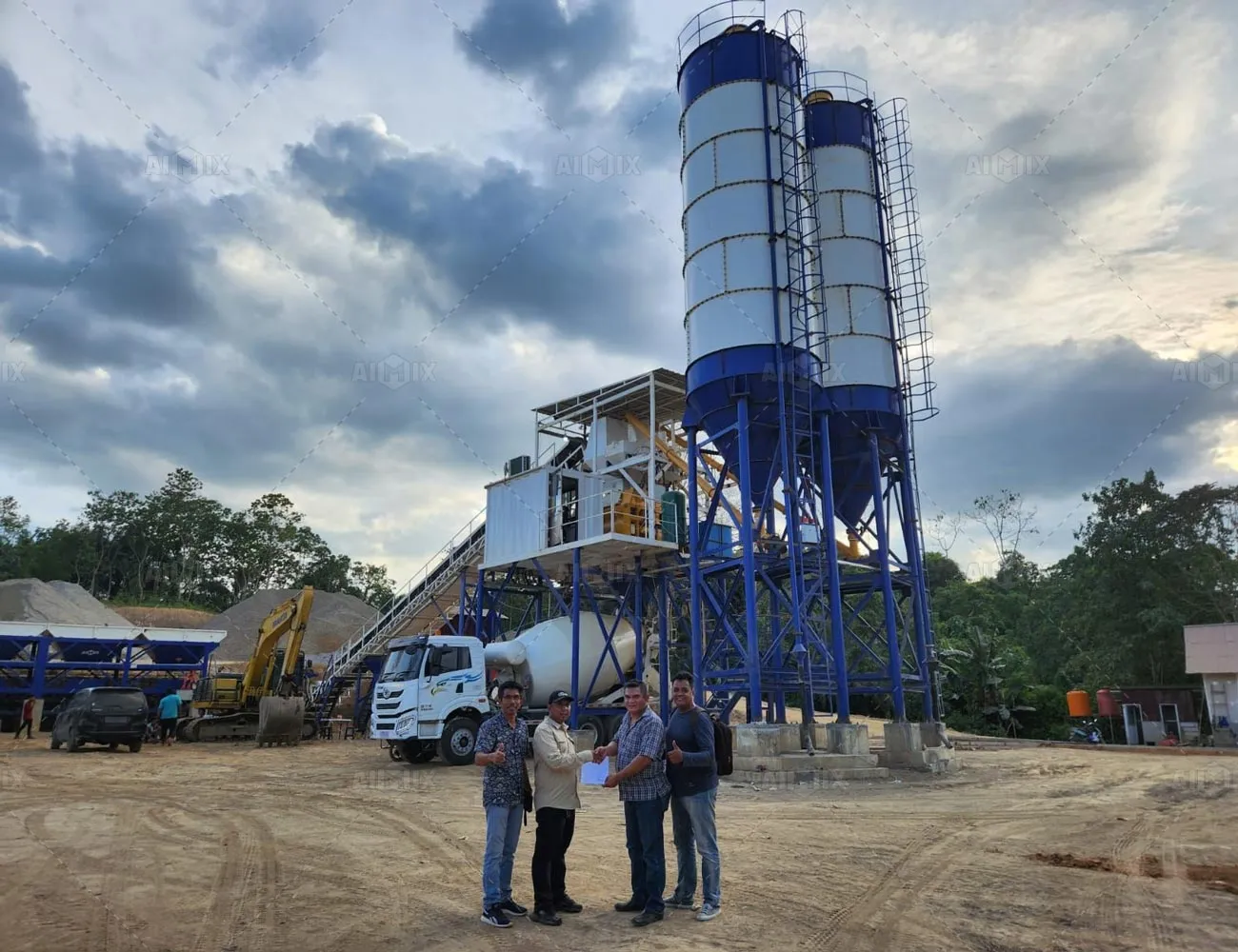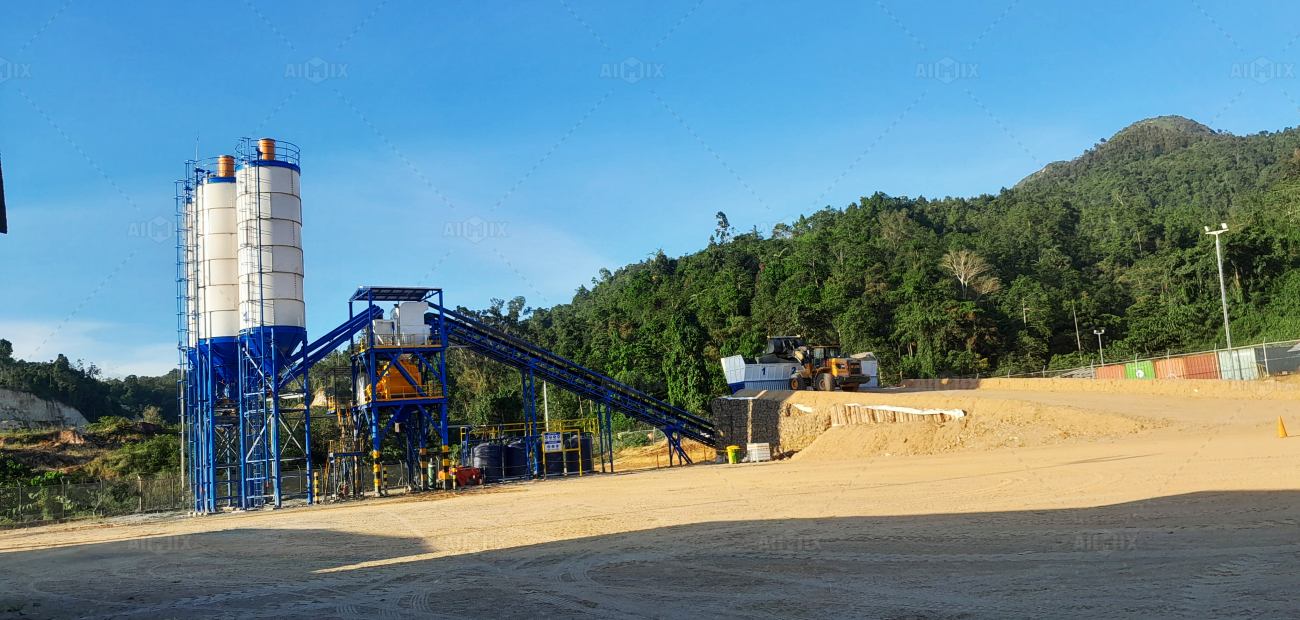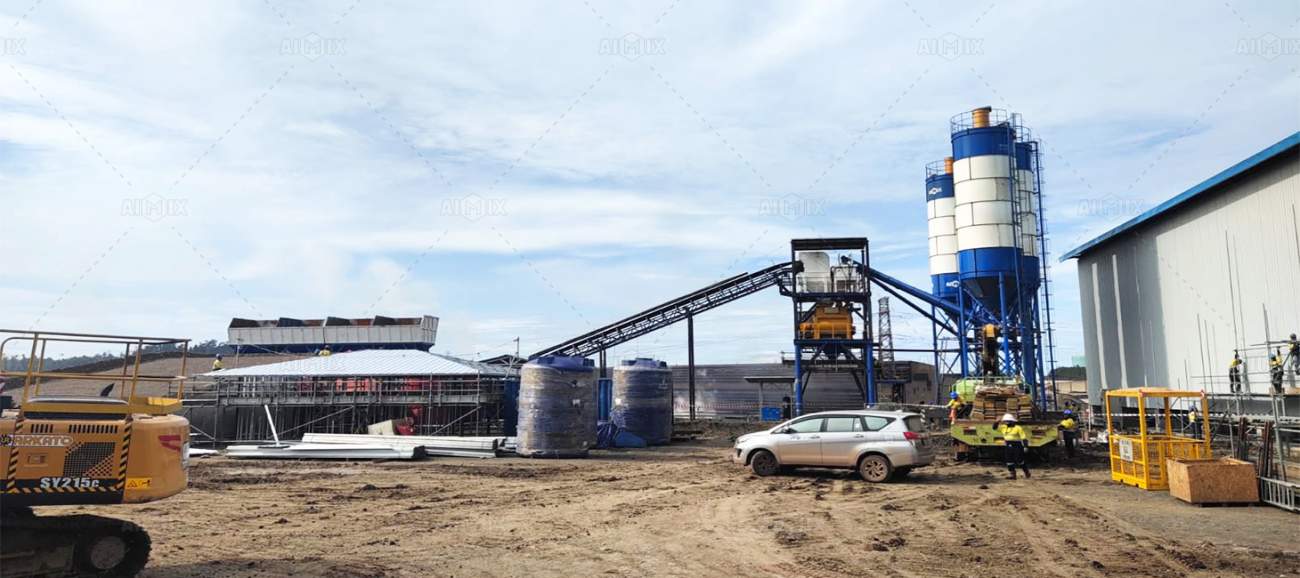In the construction industry, choosing the right concrete batching plant can significantly impact the efficiency, cost-effectiveness, and profitability of a project. Whether you are a contractor, a business owner, or someone looking to start a concrete production company, understanding concrete batching plant cost and ROI (Return on Investment) is crucial. This article will break down key factors that affect concrete batching plant prices, guide you in evaluating concrete batch plant for sale options, and help you assess the return you can expect from investing in a concrete mixing plant.

Understanding Concrete Batching Plant Costs
A concrete batching plant is a critical asset for any business involved in large-scale construction or concrete production. The primary purpose of a batching plant is to mix and produce high-quality concrete for construction projects. The cost of owning and operating a concrete batching plant depends on several factors, including plant type, size, technology, and location.
1. Type of Concrete Batching Plant
The type of batching plant you choose—stationary, mobile, or compact—will greatly influence the cost.
Stationary Concrete Batching Plants: These are fixed plants designed for long-term use at a single location. They are ideal for large-scale projects where high volumes of concrete are needed regularly. The initial investment tends to be higher for stationary plants due to their size and infrastructure requirements.
Mobile Concrete Batching Plants: These are portable and can be moved from one job site to another, making them ideal for projects that require flexibility or are in remote locations. Mobile plants tend to be more affordable than stationary ones, but their production capacity may be slightly lower.
Compact Concrete Batching Plants: Compact plants combine the flexibility of mobile plants with the efficiency of stationary ones, offering a mid-range solution in terms of both price and capacity. They are best suited for medium-sized projects.
2. Production Capacity and Size
The size and production capacity of the concrete batching plant will also affect the overall cost. Larger plants that can produce more concrete per hour or per day will typically come with a higher price tag. However, for large-scale projects, these plants are necessary to meet the demand for concrete quickly and efficiently. Conversely, for smaller-scale projects, a smaller plant with lower production capacity may suffice and reduce costs.
The production capacity is usually measured in cubic meters per hour (m³/h). Most batching plants offer a wide range of production capacities, from 20 m³/h for small projects to over 150 m³/h for large-scale commercial projects.
3. Technology and Automation
Modern concrete mixing plants come with advanced technologies and automation, which can greatly enhance efficiency and reduce labor costs. Automated control systems that regulate the mixing process, monitor the plant’s performance, and ensure the accuracy of concrete batching are common features in advanced plants. These features increase the overall cost of the plant but can improve production quality and reduce human error, leading to long-term savings.

Concrete Batching Plant Prices: What to Expect
The concrete batching plant price can vary widely depending on the factors mentioned above. Here is a breakdown of the typical cost ranges:
Small Mobile Plants: Prices for small mobile concrete batching plants typically range from $30,000 to $50,000. These plants are ideal for smaller construction sites, such as residential buildings or local road projects.
Medium-Sized Stationary Plants: A medium-sized stationary concrete batching plant with a production capacity of around 60-90 m³/h will usually cost between $70,000 and $150,000. These are commonly used for commercial building projects or medium-scale infrastructure work.
Large-Scale Plants: Larger stationary plants with capacities of 120 m³/h and above can cost anywhere from $150,000 to over $500,000, depending on the brand, location, and customizations required.
The concrete batch plant for sale market offers both new and used plants, with used plants generally costing less. However, it is essential to weigh the advantages and risks associated with purchasing a used plant, such as potential wear and tear and a limited warranty.
Return on Investment (ROI)
When considering the purchase of a concrete batching plant, it is important to assess the ROI to ensure that the investment will deliver the expected financial returns. ROI is a measure of the profitability of an investment and can be calculated by dividing the net profit from the use of the batching plant by the initial investment.
1. Production Efficiency
One of the biggest advantages of owning a concrete batching plant is the ability to produce concrete on-site, eliminating the need to purchase pre-mixed concrete from suppliers. By producing concrete in-house, businesses can significantly reduce material costs. Furthermore, owning a batching plant ensures that you have control over production schedules, which can lead to better project timelines and reduced delays.
The efficiency of the batching plant directly impacts your ROI. Modern plants with advanced automation can mix concrete more quickly and accurately, reducing waste and ensuring consistent quality. This can help contractors complete projects more efficiently and with fewer materials wasted, leading to increased profits.
2. Operational Costs
When calculating ROI, it is essential to consider the ongoing operational costs of running a concrete batching plant. These costs include:
Labor: Automated batching plants can reduce labor costs by requiring fewer workers to manage the plant.
Energy Consumption: Concrete mixing plant consumes a significant amount of energy. Energy-efficient plants can help minimize electricity costs.
Maintenance: Routine maintenance is necessary to keep the plant operating at peak performance. Maintenance costs can vary depending on the type of plant and how frequently it is used.
3. Revenue Generation
The ability to produce high-quality concrete on-site allows businesses to take on more projects, expand their client base, and generate more revenue. Moreover, owning a concrete batching plant can create opportunities for offering ready-mix concrete to other construction companies, further increasing revenue potential. This is especially true in areas with a high demand for concrete, where businesses can sell excess production to other contractors.
Additionally, some businesses use their batching plants to offer more specialized services, such as producing customized concrete mixes for specific applications (e.g., high-strength concrete for large infrastructure projects), which can command higher prices.

Finding a Concrete Batch Plant for Sale
If you are looking to purchase a concrete batch plant for sale, there are several ways to find the best options:
Manufacturer Direct: Many manufacturers sell concrete batching plants directly, often providing customization options and after-sales support.
Used Plant Dealers: Used concrete batching plants are available through dealers who specialize in pre-owned construction equipment. Buying a used plant can save money upfront, but it’s essential to carefully inspect the equipment to ensure its condition.
Online Marketplaces: Websites like Alibaba, MachineryTrader, and eBay list concrete batching plants for sale. These platforms allow you to compare prices and models from different sellers.
Conclusion
Investing in a concrete batching plant can be a significant expenditure, but it offers long-term financial benefits through operational efficiency, cost savings, and the potential for increased revenue. When considering concrete batching plant prices, it’s important to account for factors such as plant type, production capacity, technology, and maintenance costs. Assessing ROI by evaluating production efficiency, operational costs, and revenue generation opportunities will help ensure that your investment in a concrete mixing plant pays off in the long run. With careful planning and a strategic approach, a concrete batching plant can be a profitable addition to your construction business.